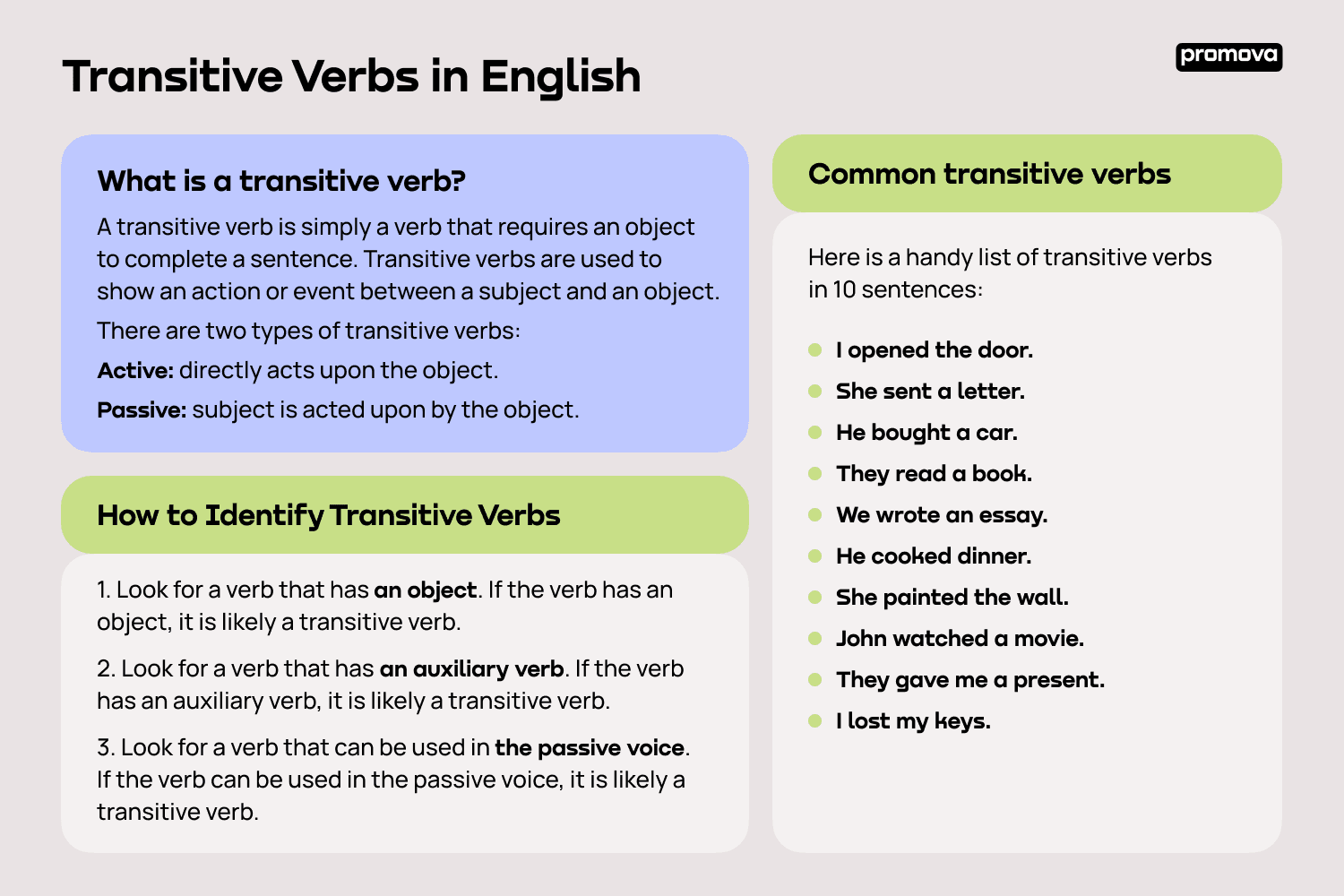Transitive verbs are an essential part of the English language. They are verbs that require a direct object to complete their meaning in a sentence. Without a direct object, a transitive verb would not make complete sense.
These verbs are important for conveying action and connecting the subject of the sentence to the object that is being acted upon. Understanding transitive verbs is key to mastering the structure and meaning of sentences in English.
Definition of a Transitive Verb
A transitive verb is a verb that requires a direct object to complete its meaning in a sentence. The action of the verb is performed on the direct object, which receives the action. Without a direct object, a transitive verb would not make complete sense and the sentence would be grammatically incorrect.
For example, in the sentence “She ate the apple,” the verb “ate” is transitive because it requires a direct object, which is “the apple.” The action of eating is performed on the apple, making it a necessary component of the sentence.
Transitive verbs can be transitive in some sentences and intransitive in others, depending on whether or not a direct object is present. It is important to recognize transitive verbs in order to construct grammatically correct sentences and convey meaning effectively.
Some common transitive verbs include “eat,” “write,” “paint,” “buy,” “send,” and “teach.” These verbs all require a direct object to complete their meaning and make sense in a sentence.
Understanding the role of transitive verbs in sentence structure is essential for effective communication in English. By recognizing and using transitive verbs correctly, you can ensure that your sentences are clear, concise, and grammatically correct.
In conclusion, transitive verbs play a crucial role in the English language by connecting the subject of a sentence to the object that is being acted upon. By requiring a direct object to complete their meaning, transitive verbs help to convey action and meaning effectively. Mastering the use of transitive verbs is key to becoming a proficient English speaker and writer.
